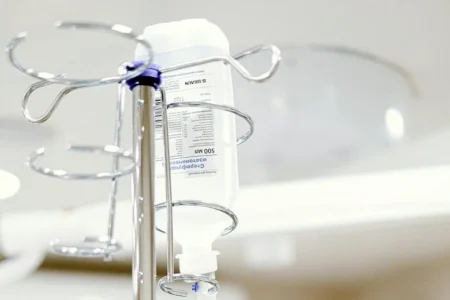How Modern Medicine Is Transforming our Approach to Healing
- Updated on: Feb 29, 2024
- 3 min Read
- Published on Apr 28, 2023

In the past few decades, the field of medicine has undergone a rapid transformation, thanks to groundbreaking discoveries, innovative technologies, and a more profound understanding of the human body. These advancements have led to new approaches to healing and the development of cutting-edge therapies that are revolutionizing the way we manage various health conditions. This article will explore the exciting ways modern medicine is transforming our approach to healing, focusing on the latest developments and the potential benefits they offer to patients around the world.
The Power of Personalized Medicine
One of the most significant advancements in modern medicine is the shift towards personalized medicine. This approach recognizes that every individual is unique and that their genetic makeup, lifestyle, and environmental factors can all play a significant role in their health. By tailoring treatments to each person’s specific needs and circumstances, personalized medicine can lead to more effective therapies and improved patient outcomes.
For instance, advancements in genomics have made it possible to identify specific gene mutations and variations that influence a person’s susceptibility to certain diseases or their response to specific medications. This information can be used to develop targeted therapies, select the most effective medications, and even predict the likelihood of a patient’s response to treatment.
The Rise of Regenerative Medicine
Another revolutionary development in modern medicine is the emergence of regenerative medicine, which focuses on harnessing the body’s natural healing abilities to repair damaged tissues, replace lost cells, and restore function. This approach represents a significant departure from traditional treatments, which often rely on invasive procedures or medications with potential side effects.
One example of regenerative medicine that has gained prominence in recent years is PRP Therapy. Platelet-Rich Plasma (PRP) is derived from a patient’s own blood and contains high concentrations of growth factors, proteins, and other bioactive molecules that promote tissue repair and regeneration. PRP therapy has been used to treat a wide range of conditions, including musculoskeletal injuries, chronic pain, and even hair loss.
Digital Health and Telemedicine
The integration of digital technologies into healthcare is another way modern medicine is transforming our approach to healing. Telemedicine, for instance, allows patients to access medical care remotely through video consultations, enabling them to receive timely medical advice and treatments without the need for in-person visits.
Digital health tools, such as mobile apps and wearable devices, also enable patients and healthcare providers to monitor vital signs, track medication adherence, and access personalized health information. This real-time data can be used to make informed decisions about a patient’s care, leading to more proactive and preventive healthcare.
Integrative and Holistic Approaches
Modern medicine is also increasingly embracing integrative and holistic approaches to healing. This approach combines conventional medical treatments with complementary therapies, such as acupuncture, massage, or herbal medicine, to provide a more comprehensive approach to patient care.
Integrative medicine acknowledges that physical, emotional, and social factors can all contribute to a person’s overall well-being and seeks to address the root causes of health issues rather than just treating symptoms. This approach can lead to more sustainable and long-lasting health improvements for patients.
Conclusion
The transformation of modern medicine is reshaping our approach to healing and offering patients new, innovative solutions for managing their health. From personalized medicine to regenerative therapies like PRP Therapy, digital health, and integrative approaches, these developments are revolutionizing healthcare and providing patients with more effective and less invasive treatment options.
As we continue to uncover new knowledge and develop novel therapies, it is essential for both healthcare providers and patients to stay informed about these advancements and embrace the potential they hold for improving health outcomes. By doing so, we can work together to ensure that the future of medicine is even more promising, effective, and accessible for all.












